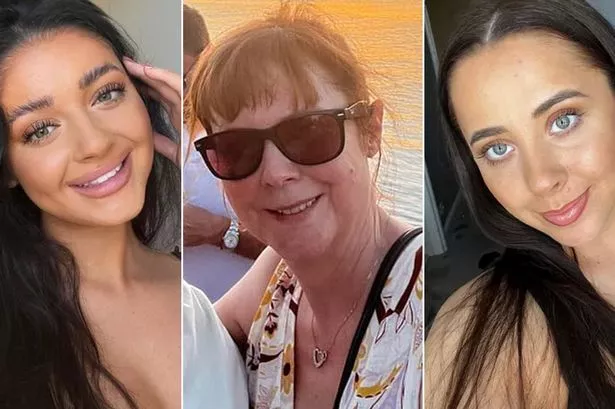Kyle Clifford stands accused of a horrific triple homicide that has shaken the community. He has pleaded not guilty in Cambridge Crown Court to the murders of Carol Hunt, Hannah Hunt, and Louise Hunt. The gravity of these charges is amplified by an additional charge of rape, further deepening the complexity and severity of the case against him. The details surrounding the deaths of the three women remain shrouded in secrecy as the legal proceedings unfold, leaving a community grappling with grief and unanswered questions. The not guilty plea sets the stage for a complex legal battle, where the prosecution will bear the burden of proving Clifford’s guilt beyond a reasonable doubt. The defense will likely challenge the prosecution’s evidence and present their own arguments to support Clifford’s claim of innocence. This trial will undoubtedly be a harrowing and emotionally charged process for all involved, particularly for the families and friends of the victims.
The legal system now faces the complex task of unraveling the truth behind these tragic deaths. The prosecution will meticulously present its case, piecing together evidence, witness testimonies, and forensic findings to build a narrative that points unequivocally to Clifford’s guilt. They will need to establish a clear motive, demonstrate opportunity, and provide irrefutable proof linking Clifford to the crimes. The defense, in turn, will scrutinize every aspect of the prosecution’s case, seeking weaknesses, inconsistencies, and alternative explanations for the presented evidence. Their strategy might involve challenging the credibility of witnesses, raising questions about the chain of custody of evidence, or presenting an alibi for Clifford’s whereabouts during the time of the alleged crimes. The judge and jury will play a crucial role in this process, carefully weighing the evidence presented by both sides and ultimately determining Clifford’s fate.
The impact of these crimes extends far beyond the courtroom, reverberating through the community where the victims lived and worked. The loss of three lives, especially under such tragic circumstances, leaves an indelible scar on the collective consciousness. The trial itself will likely be a focal point for the community’s grief and outrage, offering a platform for the victims’ families and friends to express their pain and seek justice. The media coverage surrounding the trial will also play a significant role in shaping public perception and understanding of the case. It is crucial for the media to maintain a balance between providing information to the public and respecting the privacy and dignity of the victims and their families.
As the trial progresses, the emotional toll on everyone involved will undoubtedly intensify. The families of the victims will be forced to confront the harrowing details of their loved ones’ deaths, reliving their trauma and grief in a very public setting. Witnesses called to testify will also face the pressure and scrutiny of the courtroom, potentially dredging up painful memories and emotions. Even the jurors, tasked with the immense responsibility of deciding Clifford’s fate, will be exposed to graphic evidence and emotionally charged testimonies, requiring them to maintain objectivity and impartiality throughout the proceedings. The legal professionals involved – the prosecution, the defense, and the judge – will also be navigating complex legal and ethical considerations, while managing the emotional weight of the case.
The legal system, while designed to pursue justice, is also a human endeavor, subject to its own limitations and complexities. The pursuit of truth and accountability is a challenging process, particularly in cases involving violent crimes and the loss of life. The outcome of the trial will have profound consequences for everyone involved. A guilty verdict will bring a sense of closure and justice for the victims’ families, while also holding Clifford accountable for his alleged crimes. However, even a conviction cannot fully erase the pain and suffering caused by these tragic events. Conversely, a not guilty verdict would leave the families without the closure they seek and raise questions about the efficacy of the investigation and prosecution. Regardless of the outcome, the trial itself will serve as a testament to the resilience of the human spirit in the face of unimaginable tragedy.
This case underscores the devastating consequences of violence and the importance of a just and effective legal system. As the trial unfolds, it will not only determine the fate of Kyle Clifford but also serve as a reminder of the fragility of life and the enduring need for compassion, understanding, and support for those affected by such tragedies. The community’s response to this case, both during and after the trial, will reflect its values and its commitment to ensuring justice and healing for all.














